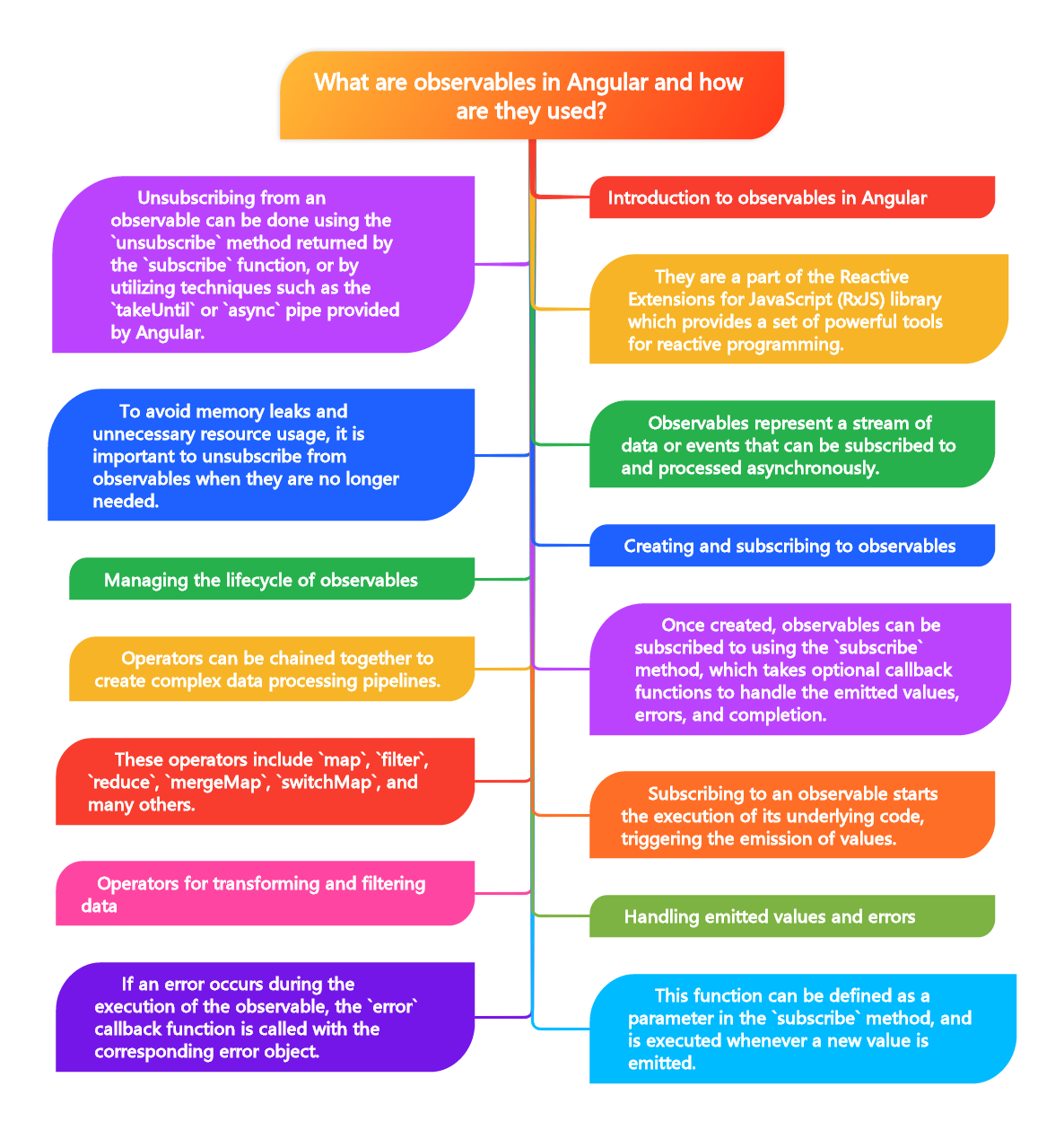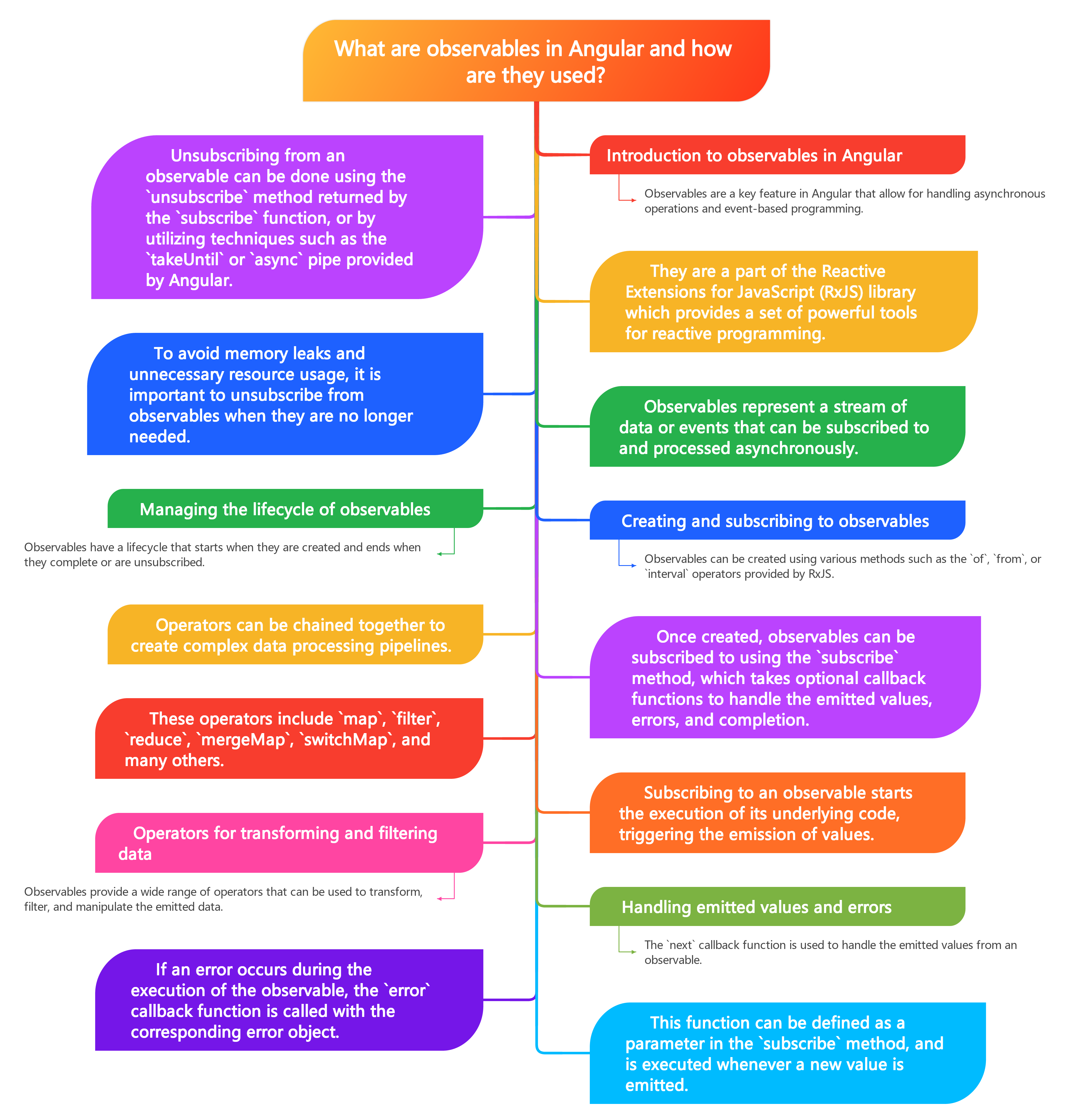What are observables in Angular and how are they used?
Purpose of asking this question : The purpose of asking about observables in Angular is to gauge the candidate’s understanding of asynchronous programming and data handling in the framework. Observables are a key concept in Angular that represent data streams and allow developers to work with asynchronous data in a more efficient and organized manner. By understanding observables and how they are used in Angular, developers can create more responsive and dynamic web applications.
- Your answer should be
- Observables in Angular are a powerful feature that allows us to work with asynchronous data streams. They are used to handle events, handle AJAX requests, and manage state in our applications. By subscribing to an observable, we can listen for changes and react accordingly in our code. This allows us to create reactive and responsive applications that can update in real-time based on incoming data.
- The benefits of using observables in Angular, such as improved code readability and maintainability.
- For example, when fetching data from an API in an Angular application, we can use observables to handle the asynchronous nature of the request and update the UI once the data is received. This simplifies the code structure and makes it easier to manage data flow within the application.
- How to create custom observables in Angular for specific use cases.
- For instance, we can create a custom observable in Angular to track user authentication status and automatically update the UI when the user logs in or out. This helps in creating a seamless user experience and simplifies the handling of authentication logic within the application.
- Best practices for handling error handling and cleanup when working with observables in Angular.
- One example of error handling and cleanup when working with observables in Angular is to use the catchError operator to handle any errors that may occur during data retrieval. Additionally, using the takeUntil operator can help unsubscribe from observables when they are no longer needed, preventing memory leaks and improving performance. These practices ensure a more robust and efficient data flow in Angular applications.
- Examples of popular libraries and tools that work well with observables in an Angular application. Popular libraries and tools that work well with observables in an Angular application include RxJS, which provides a powerful set of operators for manipulating observables, as well as NgRx, a state management library that leverages observables to handle complex data flow in Angular applications. These libraries help developers efficiently manage asynchronous data streams and state changes within their Angular applications.
- Tips for optimizing performance when using observables in large-scale applications with heavy data streams.
- One detailed example related to optimizing performance when using observables in large-scale applications with heavy data streams is to use caching mechanisms to reduce unnecessary API calls and improve overall application speed. Additionally, implementing pagination and lazy loading techniques can help efficiently manage and display large datasets without overwhelming the application’s performance.



1 thought on “What are observables in Angular and how are they used?”